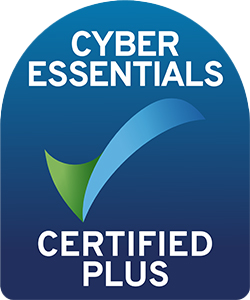The job market in the UK has shifted a lot recently. Employers are struggling to find the right candidates in engineering, electronics, and tech roles. Job seekers often spend hours applying with little feedback. That’s where recruitment agencies step in. This guide explains what to expect when working with a recruitment agency. How the recruitment process goes, step by step. Especially when working with specialists like The Electronics Group Recruitment and how we can give you a real advantage.
What to Expect When Working with a Recruitment Agency
Initial Consultation
Starting off, agencies typically begin with a chat. This can be a call or a face‑to‑face meeting. They’ll ask about the challenges you’re facing and your needs if you’re hiring. They’ll also ask about your career goals if you’re a job seeker. In both cases, they dig into details so they don’t waste anyone’s time.
When recruitment agencies talk to employers and internal recruiters, they’ll cover the details of the role, team dynamics, day‑to‑day tasks, and salary. They want to understand the company’s culture and what makes candidates stay. For job‑seekers, recruiters will want to know about your previous work experiences, what makes you tick, what skillset you bring, and what you’re not willing to compromise on.
This initial stage sets the tone. A well‑run consultation helps the agency build a profile that will match the right people to the right roles. It means you don’t risk being pushed into a mismatch because someone didn’t take time to listen. Here at The Electronics Group Recruitment, we use this first step in the process to align expectations clearly.
Sourcing and Screening of Candidates
After that initial conversation, the recruitment agency starts their search for suitable candidates. They tap into job boards, their own network, and LinkedIn. Often, using tools to reach people who aren’t actively hunting for a job. That hidden talent pool can make a big difference in technical industries.
The recruitment agency reviews CVs and filters out anyone who isn’t a match. Their team will most likely call candidates to check skills, availability, or salary expectations. They want to make sure they only present candidates who fit the brief. This screening step saves clients from having to sift through irrelevant CVs. It also gives job-seekers confidence their application goes to someone who will actually see it.
See our tips for making your CV stand out.
This screening stage is where experience really counts. When working with a recruitment agency, especially specialist agencies, like The Electronics Group Recruitment, you benefit from our combined experience in the industry.
Share Best Fit Candidates with Clients
Once they’ve shortlisted candidates, recruiters send a batch to the client. In many cases, this happens within as little as a week. Each candidate profile passed on will include information such as their CV, consultation notes, and any other insights gathered throughout screening. These can include preferences, career motivations, and any red flags.
Employers get enough detail to decide who to interview, without having to sift through every document. Ambiguity is avoided because the recruiter has already handled initial questions. That clarity speeds up the whole process.
For job seekers, this means your CV gets shared with the right people, along with notes that highlight your strengths. Your chances improve if the recruiter has captured why you’re looking for a new challenge now.

Set Up Interviews and Relay Feedback
When it comes time to set up interviews, recruitment agencies take care of the logistics. They book the time slots, send out reminders, and call ahead to prep both sides on what to expect. Candidates appreciate knowing who they’ll meet, what format the interview takes, and what questions might be asked.
See our tips for how to impress in an interview.
Employers find this useful, too. Recruiters can even coach hiring teams on legal requirements and interview best practice. They remind them to stick to agreed timelines. Recruitment agencies also ensure feedback is passed to both candidates and clients all the way through. Their continued communication also means any delays in the process can be flagged early on.
Negotiating Offers for Both Clients and Candidates
When the employer is ready to make an offer, the recruitment agency negotiates on behalf of both sides. They know current UK pay scales and typical benefits in the sector. They’ll balance what the employer can offer with what the candidate values most.
Candidates benefit because they’re not doing the negotiations by themselves. They get honest advice on whether the package is fair, based on market trends. Employers, meanwhile, gain confidence that the candidate isn’t being set up to leave soon because the offer felt cheap.
Where placement goes wrong most often is when either side feels let down over pay, notice period, holiday entitlement, or remote work options. Having someone guide the discussion helps avoid awkward conversations and prevent issues further down the line.
Overseeing Onboarding and Follow Ups
Once the offer becomes a contract, the recruitment agency helps with onboarding steps like paperwork, references, or DBS checks in the UK if needed. They also follow up after a few weeks to check how things are going.
That follow-up stage is often overlooked. Yet it shows the agency cares about long-term fit, not just quick wins. If issues emerge, they can coach both parties to a solution.
This aftercare also builds trust. Candidates feel supported. Employers feel they got value.
Why it is Worth Working with a Recruitment Agency
Recruitment is more than matching CVs. Seasoned recruiters bring real industry insights. They know salary bands, hiring trends, skills shortages, and where people often go next. That knowledge helps both clients and candidates stay smart.
For instance, right now manufacturers in the UK face shortages in IPC-trained staff. Agencies working with electronics know where to find people, and how to pitch job roles to match career goals.
That kind of added value is why specialist agencies command trust. Their advice can mean faster hires and stronger retention. It’s worth seeking out those who bring genuine insight.
Partner with The Electronics Group Recruitment
At The Electronics Group Recruitment we work differently by choice. Our team lives and breathes electronics, engineering, and manufacturing. We know businesses, suppliers, tech tools, and compliance details. That’s why working with a recruitment agency like ours means more fitting candidates.
We match talent using three core strengths: our industry knowledge, our active candidate community, and our training services. Our IPC training centres mean we speak the same language as candidates and clients. When an electronics engineer applies, we understand what stands out about their skillset.
We won’t claim to fill roles overnight. Instead, we focus on fit. Our consultative approach helps improve job specs when needed. We aim for placements that last.
If you’re ready to save time, hire smarter, or step into your next role the right way, let us show you what partnership feels like. Speak to our team today to get started.


